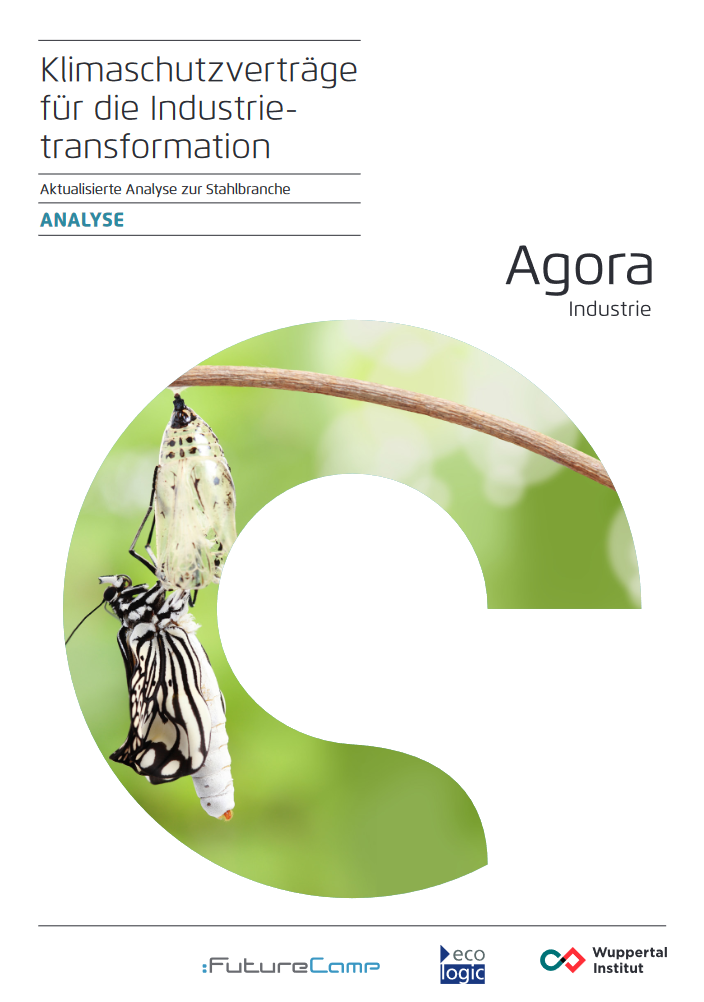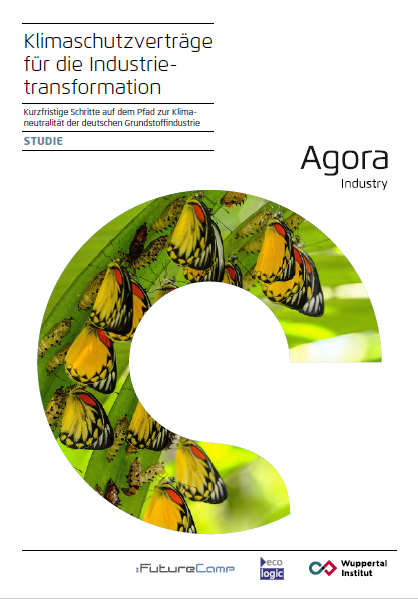Klimaschutzverträge für die Industrietransformation – Aktualisierte Analyse zur Stahlbranche
- Publication
- Citation
Agora Industrie, FutureCamp, Wuppertal Institut und Ecologic Institut (2022): Klimaschutzverträge für die Industrietransformation. Aktualisierte Analyse zur Stahlbranche.
The regulatory framework for the transformation to a climate-neutral industry has evolved. To take account of the changes, we have revised our analysis on the role of climate protection contracts in the steel industry, which was mainly based on data from 2020. This updated study analyses how climate protection agreements in the steel industry can be designed in such a way that – in conjunction with the reform of European climate policy – they have an impact on climate protection, energy security and a meaningful transformation of the economy as a whole.
Our findings show that the transformation of the steel industry remains sensible and necessary despite massive price shifts. The transformation of the industry will slightly increase the demand for natural gas in the medium term, but overall energy use will decrease due to higher process efficiency and can increasingly be met with renewable electricity and hydrogen at moderate cost.
Key findings of the updated analysis are:
-
To ensure that the steel industry remains fit for the future, a rapid transformation is needed - even under changed conditions: A good third of primary steel production must be converted to direct iron reduction before 2030. Combined with the expansion of the secondary steel route, this opens up a path to establishing resource-efficient, climate-neutral and independent steel production in Germany.
-
Carbon contracts for difference are urgently needed in the current energy price crisis to ensure the transformation to climate-friendly steel production. In parallel, the EU emissions trading system must be reformed and green lead markets established so that climate-friendly steel is rewarded on the market and can become established as the standard.
-
Despite high energy prices, the additional costs of the steel transformation can be reduced to significantly less than €9 billion by implementing the EU reform processes. Through an intelligent combination of policy instruments at national and European level, green steel can be competitive as early as 2035.
-
Direct iron reduction is a strategic anchor for accelerating the market ramp-up of renewable hydrogen and building the infrastructure needed to support it. The initial operation of the plants with natural gas remains sensible despite high prices in order to secure a rapid expansion of the hydrogen economy.




